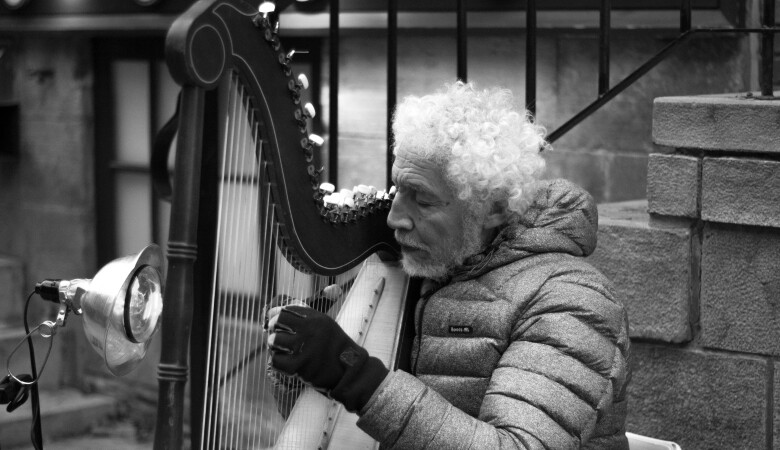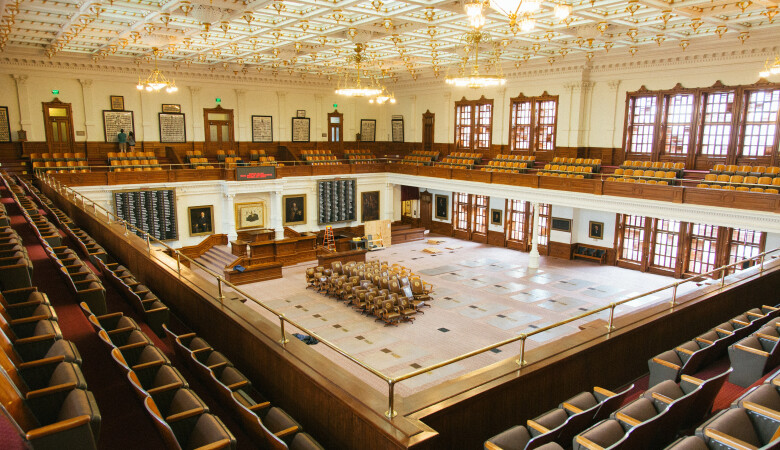Christ's Power on Earth to Forgive Sins (Matthew Sermon 29 of 151)
August 04, 2002 | Andy Davis
Matthew 9:1-8
Deity of Christ, Forgiveness
Introduction
There's nothing that Christ cannot do. He is sovereign and powerful, and he is a king. As we consider him as a king, an utterly unique king in all the history of the world, we see that history is full of the accounts of one king after the other. Some of the kings of history have been totally colorless. There's nothing about their reign that's worth studying. You read them, you find out when they're born, when they died, how long they were king and nothing else, because they didn't do anything. Perhaps their reigns were characterized by selfishness or by laziness. But we see also some extraordinary human kings throughout history, and we still have records of some of the things that they've done.
For example, Croesus who is the final king of the kingdom of Lydia, lived around the time of Josiah of the Bible. He was known for his fabulous wealth. It seemed that everything in his kingdom was made of gold and silver. Some think he was even wealthier than Solomon. Or consider, Caesar Augustus who was the mightiest and most capable of all the Roman emperors. He was known as the architect of the “Pax Romana”, the Roman Peace. He put in place a style and a system of government that lasted longer than any other that's been found on the face of the Earth. Or how about Richard, the Lionheart of England who led the third crusade. He was known for his physical size and for his strength. When he was meeting with his Muslim counterpart, and they were negotiating, they each took out their respective swords and each king exhibited stunning sword prowess. Genghis Khan of Mongolia was known for his cruelty and his incessant hunger for the advancement of his geographic kingdom. When he died, he ruled over the largest kingdom that had ever been up to that point. Hung-wu of China founder of the Ming Dynasty, 14th century AD was known for his love for education. He set up more schools than had ever been seen in China, up to that point. Because of his example he was able to train and educate leaders and prepare them for future generations. The Ming Dynasty lasted the longest of any of the dynasties, 300 years. Or consider Prince Henry the Navigator of Portugal who set up a school of navigation and because of him navigators went all over the world exploring. As another example consider Sulieman the Magnificent of Turkey, called The Lawgiver of the Ottomans who lived around the time of Martin Luther. He was so powerful and strong that he brought his kingdom right up to the walls of Austria. Many people including Luther thought that the church was going to be swept away. Or Shah Jahan the Mughal, emperor of India, renowned for architecture who left behind the Taj Mahal as a memorial to his dead and beloved wife. Or Louis XIV of France, the Sun King, known for extravagance and luxury who left behind the Palace Versailles as a testimony to his love of grand things. Or Peter the Great of Russia, known for his humble taste, his versatility and incredible work ethic, who wore common clothes, like a peasant, and enjoyed talking about ship building or anything else with anybody who wanted to. He could easily be seen in the blacksmith shop working alongside the other blacksmiths. Or Frederick the Great of Prussia, a military genius whose battles are still studied at West Point. All of these kings were renowned for some extraordinary aspect to their kingdom.
Now I ask you today as you think about Jesus Christ, the King of the Kingdom of Heaven, what is the extraordinary aspect of his kingdom? Can you really choose just one thing? Is not his kingdom like a diamond that every time you turn it, another facet shines more brilliantly and more brightly? I think as we've looked at Christ, as we studied the exploits of the King of Kings, the Lord of Lords, the King of the Kingdom of Heaven, we see that his kingdom is characterized by, number one, perfect righteousness. And number two, absolute power. And number three, immeasurable mercy to the needy.
First of all, perfect righteousness. The first words that Jesus speaks in the New Testament he speaks to John the Baptist, when John hesitated to baptize him. Jesus said, "Let it be. So now, we must fulfill all righteousness." Jesus' kingdom is founded on his love for purity and righteousness and holiness. Also we've seen in Christ, absolute power. Is there anything that can be done by power, that Jesus Christ cannot do? He has all power and no obstacle that faced him was too great. He had kingly power over disease and sickness and death. Anybody who was brought to him, he could heal. He had absolute power over the elements, absolute power over demonic forces; he had power over all things. We also see in Christ immeasurable mercy to the needy. He had a tender compassion for those that were needy. Within any group of people there are more needs than we can measure yet Jesus Christ is equal to each one of them. He is merciful and compassionate to each one. Financial needs, health needs, loneliness, family struggles, broken relationships. All of these needs, Jesus faced as well, and he was tender and compassionate to all of them. We will see in this section of Scripture today that Jesus points the way, in the text, to the greatest need that any human being has, and that is the need for the full forgiveness of sins. That our sins might be forgiven through his blood. Jesus Christ in his sovereign reign, through his perfect righteousness, through his absolute power, and through his tender mercy points the way to his kingdom, full forgiveness of sins. “Take heart son. Your sins are forgiven.”
Obstacle-Overcoming Faith
We also see in our text that it is only through personal faith in Jesus Christ that this gift is given. Look at Matthew 9: 1-2 "Jesus stepped into a boat crossed over and came to his own town. Some men brought to him a paralyzed man, lying on a mat.” When Jesus saw their faith, he said to the paralytic, 'Take heart Son, your sins are forgiven.'" The context is this: Jesus has just left the region in the Gadarene. He's just by a word of power cast out Legion, that most powerful of demons, and he leaves behind a single witness in the ten-city region of the Gentiles, saying, "Go tell them the great things that God's done for you.” Then he gets in his boat and crosses back over to his hometown. This is not Nazareth. They expelled him from Nazareth for preaching the truth. They didn't want to hear it. They said, "A prophet has no honor in his own country,” so he took up residence in Capernaum which became his base area. In verse 2, it says, "So men brought to him a paralytic lying on a mat and Jesus saw their faith and said to the paralytic, "Take heart your sins are forgiven." What is the faith that's just demonstrated before us? It is a faith that overcomes obstacles. In order to get the full story, you have to look at Luke and Mark as well to see just what these men and this paralytic went through. Listen to Mark 2:2-4. "So many people gathered." It says there that, "there was no room left, not even outside the door, and he preached the Word to them. Some men came, bringing to him, a paralytic carried by four of them. Since they could not get him to Jesus because of the crowd, they made an opening in the roof above Jesus and after digging through it, lowered the mat the paralyzed man was on." Incredible obstacles faced these men that day. Now we think if only I had lived back then, I would be able to go and spend sweet time with Jesus. Is that what it would have been like? Not at all. You won't even get close to Jesus. You couldn't get close. Huge crowds were around Jesus all the time. These men bringing this paralytic on a mat couldn't even get close to Jesus. What did they do? They had obstacles, but they also had a genuine faith. They overcame these obstacles. They said, "We're not giving up, we're not going to go away. We've carried him all this way, we're not going to turn back. Jesus is able to heal him. What shall we do?"
Can you imagine standing there? Maybe there were four of them, and they were talking among themselves how to get him through. Perhaps one said, "I have an idea. Why don't we go up onto…” It's probably Peter's house, I think Peter was, he was living in Peter's house. “Why don't you go up onto the roof and dig through and maybe we can drop him down in front." And that's exactly what they did. They removed some of the tiles, they ruined Peter's roof in order that they might get this man right in front of Jesus. They lower him down. This is an obstacle-overcoming faith and any genuine faith from God overcomes obstacles. It doesn't matter what Satan or what anyone puts in front of that faith, the obstacles will be overcome.
There was another obstacle too and that's the theology of suffering that the Jews had back then. They believe that anyone who was suffering, any paralyzed man, any blind man, anybody who had a disease, it was because of specific sin that they had committed. The sufferer would be considered to some degree, outcast since they had done something wrong. “We don't know what it is, but there is some sin there.” This attitude comes across in Job 4:7-8, "Consider now," said Job's friends to him, "who being innocent, has ever perished? Where were the upright ever destroyed? As I have observed, those who plough evil and those who sow trouble, they reap it." In other words, this guy must have done something terribly wrong to be paralyzed. They had to get over that and say, "We don't care what anybody thinks about us, we want him to be healed,” so they came to Christ.
Faith works, faith overcomes. Look again at verse 2. "When Jesus saw their faith." There are two different ways to take that. First, Jesus had the ability to see into their hearts, to perceive the true status of their souls before God. He could perceive their faith. He could read their hearts and their minds. He could perceive that they had faith and not just faith for healing, but faith for salvation. But there's another truth here as well. You would have been able to see their faith by what it accomplished, by what it did. A true, saving faith is not a quiet inner thing that never breaks out into your life, but rather as James says, "What good is it my brothers, if a man claims to have faith but has no deeds, can such faith save him?" Faith by itself, if it is not accompanied by actions, is useless. So this was a genuine faith, accompanied by deeds, accompanied by actions. They carried the man, they dug through the roof, they would not give up. It was an active living faith. Faith overcomes obstacles, faith defeats those things that Satan puts in front of it.
Look at Romans 4. Abraham is our example, our father-in-faith. How was it that Abraham was justified? The Scripture says very plainly that God made a promise to Abraham, Abraham believed that promise and it was credited to him as righteousness. What was the promise? He took him out and had him look up at the stars. He said, "Look at those stars, Abraham. I know that you're barren. I know that your wife is barren and you have no children. I know that, but look at the stars, and here's My promise to you. ‘So shall your offspring be.’” As a promise of God, Abraham heard that promise, he believed God and it was credited to him as righteousness. In order to believe God, however, he had to overcome some obstacles. He had to face the fact that as Romans 4 says, his body was as good as dead since he was about 100 years old. He had to face the fact that his wife Sara's womb was also dead. He didn't have an ostrich faith, with his head in the ground, instead he saw the obstacles, he saw what was in front and he said, "I believe you anyway. Because you are sovereign, you are almighty, you are powerful, you can do anything."
So also it is that anyone who would desire to come to personal faith in Christ must overcome obstacles. If you want to become a Christian, you have to basically run across a landmine strewed, barbed-wire-infested, machine gun nest world in which Satan opposes every step of the way. 1 John 5 says, "Everyone born of God overcomes the world." This is the victory that has overcome the world, even our faith. Who is it that overcomes the world? Only he who believes that Jesus is the Son of God.
If you want to come to personal faith in Christ, you need to be a conqueror, you need to be an overcomer. It says in Revelation 21:6-7, "he said to me, 'it is done. I am the Alpha and the Omega, the beginning and the end to him who is thirsty I will give to drink without cost from the spring of the water of life. He who overcomes will inherit all this, and I will be his God, and he will be my son." It's to the overcomer that salvation comes. And these persistent actions speak of a deep faith. The men refused to be stopped.
Humble Faith
It also speaks of the humility of faith. Not only is faith obstacle-overcoming, not only is it persevering, but it is also humble and broken-hearted. This man by his physical inabilities actually pictures all of us before the throne of God. This man could not move. He couldn't do anything. In order to survive, he had to be a beggar and Jesus said, "Blessed are the spiritual beggars for theirs and theirs alone is the Kingdom of Heaven.” It's only the beggars, the helpless ones, the ones who know that they are spiritually needy that go to Heaven. So in verse 2, pardoned by faith in Christ, Jesus saw this kind of faith when he saw their faith and said to the paralytic, "Take heart, son, your sins are forgiven." The most astonishing thing about this is the price, the cost, of this forgiveness. Jesus looked down at them and gave this man, this one man, the greatest gift that any king has ever given. Full pardon. Full forgiveness of sins.
It's not great if you don't understand what kind of record of sins awaits you, apart from Christ. The Bible says very plainly that on Judgment Day you will have to give an account for every careless word you have spoken. By your words, you will be acquitted and by your words, you will be condemned. There's a careful record being kept of everything we've ever said or done and of everything we didn't say and didn't do, every opportunity we did not take advantage of. All of these things. A careful record is being kept because our God is a just and righteous judge. At that moment, Jesus looks down and says, to this man, "Your sins are forgiven, take heart, your sins are forgiven."
It was not the effort, the struggle, the obstacle-overcoming that earned them salvation, not at all. For we maintain that a man is justified by faith alone, apart from works of the law. You can dig through a million roofs and you'll never be saved. It's simple faith in Jesus Christ that saves. There's an interesting detail here in verse 2, "When Jesus saw their faith, he said to the paralyzed man, 'take heart son, your sins are forgiven.'" It's very easy to make a misstep here. I myself was raised in the Roman Catholic Church and in the Catholic church especially in the Middle Ages, they had the idea of a treasury of merit. The idea was that other righteous people, saints, they call them, went before us, and lived more righteous than you really needed to live in order to get to Heaven. So they had some righteousness left over, and it was as if it were put into a bank account for you. This treasury of merits is a thing that you're drawing on if you're not as good as them. They've made their extra... It's kind of like an inheritance. They bequeathed to you their extra righteousness, not quite enough to get you to Heaven, but it's enough to help maybe reduce your time in purgatory some. The idea is that as we do righteous things we can actually help other people, reduce their time in purgatory, even get them out of Hell and into Heaven. This is utterly false. Just because you have a godly father, godly mother, godly Sunday school teacher, godly pastor, that doesn't save you. You have to yourself, personally, individually, appropriate the salvation that is available through faith in Christ. Jesus knew his theology of salvation very well. When he looked down to that paralyzed man and said to him, "Your sins are forgiven," he didn't forget what was going on, he knew that this man had faith to believe for salvation and so he believed. But the Bible does say, "When Jesus saw their faith." Well, what is that? I think what it means is that the faith of faithful people can actually make it easier for others to trust Christ. Missionaries, go out. Hudson Taylor, for example, the one who threw himself on a map of China and said, "Give me China or I die." He had a strong faith and went to the inland regions where it was tough and witnessed to the Chinese. He was in effect dragging all these paralyzed Chinese people, paralyzed spiritually to Christ, and they were able to trust in Christ through his faithful light, through his witness. We by our faith can make it easier for others to believe: by preaching the gospel, by living in front of them a witness. But ultimately each individual person must believe for him or herself and we have this incredible good news from the judge, "Take heart, son, your sins are forgiven.”
Jesus as Judge
Have you ever used or heard the expression, ”Consider the source." “Consider the source” means to look at the individual who's making the statement and weigh accordingly. I'm urging you to consider the source of the one who said, "Take heart, son, your sins are forgiven." Imagine that you were accused of a serious crime and you were being dragged into court to face a judge. As you're dragged into court some bystander whom you've never met calls out to you and says, "Be encouraged, you're acquitted, you can go home." Would you be happy at that moment? Would you feel a sense of joy filling your heart? Consider the source, they're just a bystander. They have no authority to make that statement. But suppose an hour or two later the judge says, "Take heart, son, you're acquitted,” and then the gavel goes down, case dismissed. Would you be encouraged at that particular moment? Yes, consider the source. This one's the judge and he has acquitted you. You're free to go home. So who is it that spoke these words, "Take heart, son, your sins are forgiven?" It was Jesus Christ the judge of all the Earth. John 5:22, "Moreover, the Father judges no one, but has entrusted all judgment to the Son, that all may honor the Son even as they honor the Father."
All judgment in heaven and earth and under the earth has been has been entrusted to Jesus, and he will be the one sitting on the throne. Recently I was in an airplane witnessing and I was talking to a person about the Ten Commandments. He said, “I’ve never murdered, I've never committed adultery, I've never done these things.” I said, "Well, Jesus actually gave us a legal commentary on the Ten Commandments in the Sermon on the Mount. Jesus said you may not have murdered, but have you ever been angry with your brother? You're in danger of the fire of hell. You may never have committed adultery, but have you ever looked at a woman lustfully? You're in danger of the fire of hell. "Well, that's just Jesus' opinion,” was the reply. No, it isn't. Jesus is the judge who's going to be sitting and judging you. He will be the one who will apply the law of Moses and therefore his opinion in this matter, matters greatly because he is the judge of all the earth. If on the other hand, Jesus looks at you saying to you, "Take heart, your sins are forgiven,” now that is something. That's what happened to that paralyzed man that day. The judge of all the earth looked down at him and said, "Take heart, son, your sins are forgiven."
Meditate now on the cost of that statement. One of the aspects of Jesus' Kingdom is his perfect righteousness. If we had, for example, a judge who looked out at a murder where the evidence is clear that this person committed the crime, and the judge said, "You know, I'm a nice guy, I'm a kind individual, case dismissed." They might be a kind individual, but would they be a good judge? A righteous judge? Not at all. Jesus is a righteous judge,so when he said, "Take heart, son, your sins are forgiven," what he said was, in effect, the blood necessary to atone for your sins will be shed on your behalf. Your death penalty will be paid for you for the wages of sin is death. Hebrews 9: 22 says, "Without the shedding of blood, there is no forgiveness." Later in Matthew's gospel, at The Last Supper, Jesus took a cup filled with wine and he offered it, gave it to all of them and said, "Drink from it, all of you. This is the blood of my covenant which is poured out for many for the forgiveness of sins." Ephesians 1:7 says, "In him we have redemption through his blood the forgiveness of sins in accordance to the riches of God's grace."
When Jesus spoke these words they were not idle words, they were expensive words. "Take heart, Son, your sins are forgiven," means “I will pay for all of the things you ever done wrong. I will pay for your sins with my own blood.” At this particular moment, some teachers of law said to themselves, "This fellow is blaspheming,” Blasphemy was a very serious charge. Blasphemy means to take on yourself the attributes of deity, something that only God could say or do, or to use the divine and blessed name in a careless flippant way. This would be the charge that would kill Jesus Christ. In John chapter 10, Jesus made the statement, "I and the Father are one." At that moment the Jews picked up stones to stone him. There was no time anymore for discussion, no more time to listen to the teaching. "I and the Father are one," means “I am God.” They picked up stones to stone him. Jesus said, "I've shown you many great miracles from the Father, for which of these are you stoning me?" The Jews answered, "We are not stoning you for any of these, but for blasphemy because you, a mere man, make yourself equal to God." Later in Matthew's Gospel, Jesus is standing before the High Priest on trial for his life and the high priest says, "I charge you under oath by the living God, tell us if you are the Christ, the Son of God." And Jesus said, "I am." The high priest tore his robes and said, “He has spoken blasphemy. Now, you've heard the blasphemy. What do you say?" And they all yelled, “He's deserving of death." This would be the very charge that would kill Jesus Christ — blasphemy. They uttered true doctrine. They said, "Only God can forgive sins like this." They were right. Their doctrine was true. Only God can forgive sins like this. Isaiah 43:25 says, "I, even I am he who blots out your transgressions for my own sake and remembers your sins no more."
Now imagine that you were a police officer and arrested a man for burglary having caught the man right in the act. Suppose the homeowner was standing right there. The homeowner's a Christian who loves the Lord and says, "Officer, I want you to know that I forgive this person completely for what they've done and I'm not going to press charges." Is there any weight to that? Absolutely. That person is the one who's been transgressed against, and so it is that all of you can and should forgive people who transgress against you. But suppose, again, you were that officer, the burglar's caught in the act, and the neighbor across the street comes in the room and says, "I want you to know, officer, I forgive this person's sins." What right does that person have to make the statement that some sin that this individual committed is forgiven? And not just any sin, but all the sins are forgiven? Only God can make this kind of statement.The Pharisees were the teachers of the law, but they missed it through unbelief. What would the logical conclusion be? That this is God in front of them. God can say this thing and therefore Jesus is God. He can make this statement. Instead they concluded that he was a blasphemer. But Jesus gives them some proof for faith. In verses 4 though 8, knowing their thoughts, Jesus said, "Why do you entertain evil thoughts in your hearts?" Which is easier to say? Your sins are forgiven or to say, get up and walk. But so that you may know that the Son of Man has authority on Earth to forgive sins, he said to the paralytic, "Get up, take your mat and go home." And the man got up and went home. The whole crowd was filled with awe and they praised God who had given such authority to men.” We have evidence of Christ’s deity. The logic of faith. He's reasoning with them here. He's saying... “Let me ask you a question, which is easier, to say your sins are forgiven or to say, get up and walk?”
The Power of Jesus’ Words
There's nothing to the saying, but there's something to the doing. There's nothing to the words, but there's something to the power of the words. You see, we throw words around all the time. They don't mean much to us. It's a whole different thing with God. When he speaks, it is. He's not a liar like us. He used words to create Heaven and earth. He used words to say, "Let there be light," and there was light. He spoke through the prophets and every word is true. When he wanted to communicate, finally, and speak a final word to the human race, he sent his son, who is called The Living Word of God. We throw words around, Jesus doesn't. “So that you may know that my words have power, watch this.” That's the logic of faith.
Remember also, “Jesus, knowing their thoughts, said to them…” You see the fact of the matter is they never vocalized their statement. They're feeling that Jesus was speaking blasphemy. Can you read my mind? No. But Jesus can. As a matter of fact, all of your secret thoughts lay open before him. Before a word is on your tongue, he knows it completely. This is the God we worship. Jesus can read minds, and said, "Why do you entertain evil thoughts in your hearts?" Jesus has the power to read minds and all of your thoughts will come before Him again on Judgment Day. He wanted teeth Pharisees to know that He has the power to do that and even a greater power than that. He has the power to heal bodies so that they may know that this man's sins have already been forgiven. All of the time this discussion has been going on, this paralyzed man has been laying there and his physical condition hasn't changed at all, but his spiritual condition is radically different. He is saved now. If he were to die at that moment, he would go to Heaven and not to hell. Can he feel the difference? No, he cannot, but by faith he knows it's happened. It's already occurred, his sins are forgiven simply by the words spoken by Jesus. But so that you may know that it's happened, he speaks to that paralyzed man and says, “Rise and walk.” When Jesus says it, he just speaks and it is because with his words come power. Jesus speaks and says to the paralyzed man, "Rise and walk." At the moment that he speaks it, whatever disease it is, is instantly healed by the power of Jesus Christ. This is the God that we worship. Not in word only, but also in power, 1 Corinthians 4:20, "For the kingdom of God is not a matter of talk, but of power." The word of the Gospel is powerful simply by believing.
Now, I want you to understand, it's because of this that all the miracles were done. Jesus wasn't opening up a permanent miracle shop so that every time somebody was hurt, they could run to Jesus or be carried to Jesus and be healed, but rather so that we might know why he really came, the forgiveness of sins. And that power is here even today. The reality is in Heaven, the evidence is on Earth. Verse 7, "And the man got up and went home." Do you believe, do you believe it happened? Do you believe that Jesus has this kind of power? Even more, do you believe that by his death on the cross all of your sins can be forgiven? Do you think you need a Saviour? Do you believe and accept that the greatest need any human being ever has is forgiveness of sins? Even if you're paralyzed. The greatest need is forgiveness of sins. Do you believe that today? Because if so, then salvation is available simply by believing and hearing the word. That's all. Faith comes by hearing the word, that's all. And that healing power is here today.
Application
What kind of application can we take for this? Number one, rejoice in Christ's unlimited power, not in word only, but in deed and in truth. Look at verse 8, "When the crowd saw this, they were filled with awe and they praised God who had given such authority to men." Rejoice that Jesus hasn't changed. He's the same today as he was then. Secondly, complete forgiveness of sins. Think about what your burdens are — Burdens of health problems, physical loneliness, other problems, difficulties, unemployment, broken relationships. All of them are small compared to the need for forgiveness of sins. Set your hierarchy properly and if you know and you know by faith that your sins have been forgiven through Jesus Christ, then you can say, in the words of the hymn, ”It is well with my soul," no matter what's going on with my body.
Did Jesus heal this man? Yes, he did. He cares about your problems. He just wants you to know the hierarchy: first, forgiveness of sins. Secondly, all these other things will then be given to you. “Seek first the Kingdom of God and all of these things will be added to you as well.” Thirdly, there are obstacles to overcome for faith. Any good thing you want to do for God, there are going to be obstacles. Do you have an obstacle-overcoming faith the way these men did? Would you have turned away and gone home shrugging and saying, "I'm sorry, we tried, ” or would you have climbed up on the roof and dug through? What kind of faith do you have? Do you have a small faith or an obstacle-overcoming faith? Fourthly, I want you to be an instrument by your faith and leading others to Christ. You could find yourself in two ways in this story, you could find yourself the paralyzed one, who was totally forgiven by Jesus Christ or you can find yourself the one carrying the one who needs to be forgiven. I think you should find yourself in both ways, first the one and then the other. I want this Church to be a witnessing Church, I want you to carry people to Jesus who need Him. I want you to invite your friends and your family to Church. I want you to open your mouth this week and speak for Christ. Have the courage to bring somebody to Christ this week. Our God is a great God and the same power that was available then, for healing and for forgiveness, is available today for salvation.






























